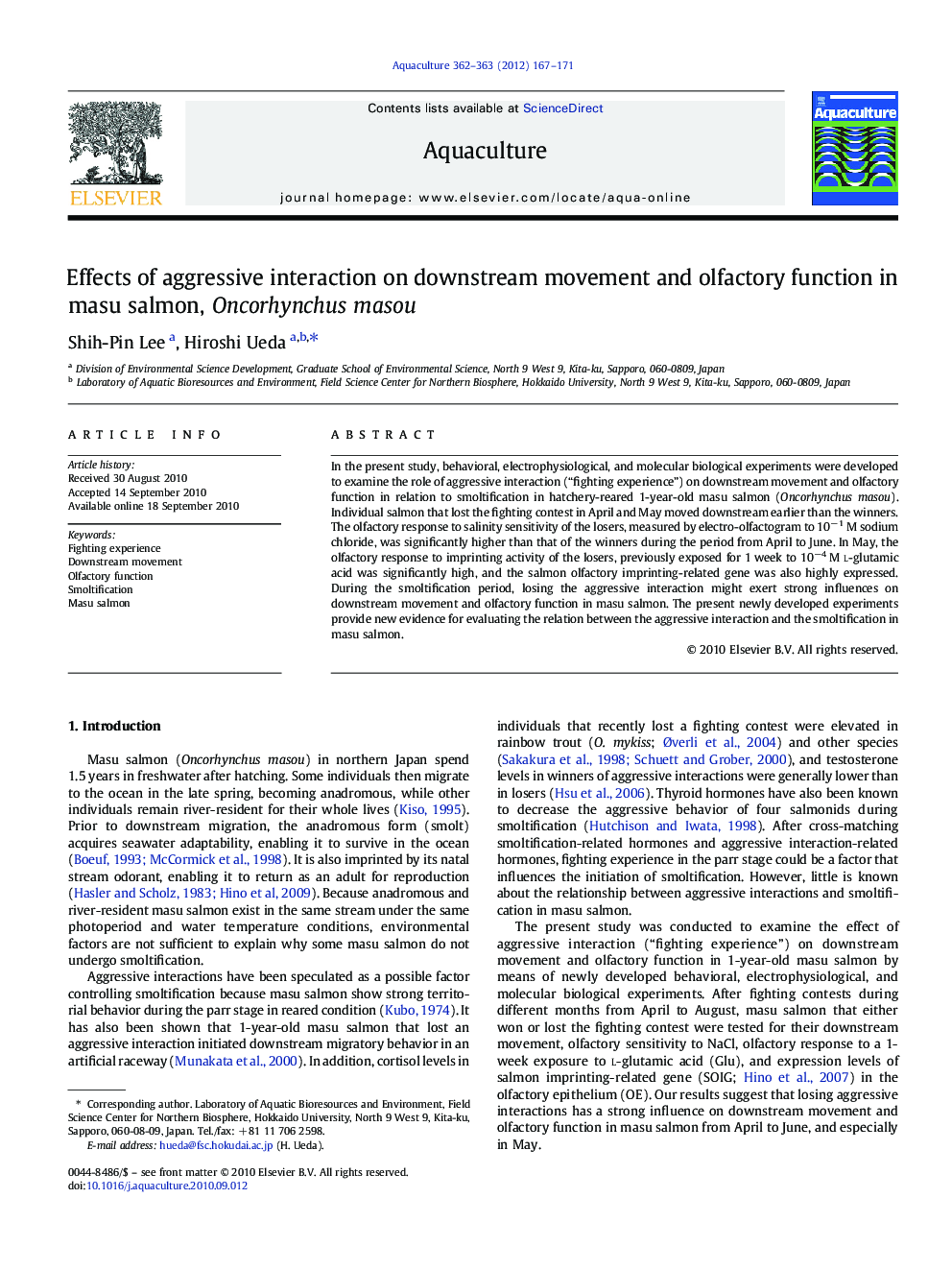| Article ID | Journal | Published Year | Pages | File Type |
|---|---|---|---|---|
| 2422335 | Aquaculture | 2012 | 5 Pages |
Abstract
In the present study, behavioral, electrophysiological, and molecular biological experiments were developed to examine the role of aggressive interaction (“fighting experience”) on downstream movement and olfactory function in relation to smoltification in hatchery-reared 1-year-old masu salmon (Oncorhynchus masou). Individual salmon that lost the fighting contest in April and May moved downstream earlier than the winners. The olfactory response to salinity sensitivity of the losers, measured by electro-olfactogram to 10â1Â M sodium chloride, was significantly higher than that of the winners during the period from April to June. In May, the olfactory response to imprinting activity of the losers, previously exposed for 1Â week to 10â4Â M l-glutamic acid was significantly high, and the salmon olfactory imprinting-related gene was also highly expressed. During the smoltification period, losing the aggressive interaction might exert strong influences on downstream movement and olfactory function in masu salmon. The present newly developed experiments provide new evidence for evaluating the relation between the aggressive interaction and the smoltification in masu salmon.
Related Topics
Life Sciences
Agricultural and Biological Sciences
Aquatic Science
Authors
Shih-Pin Lee, Hiroshi Ueda,
